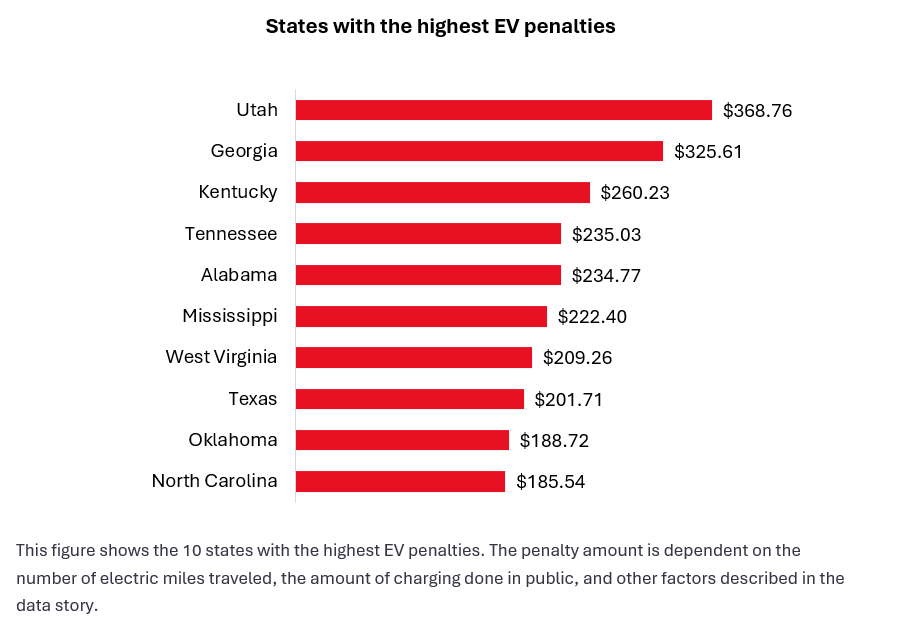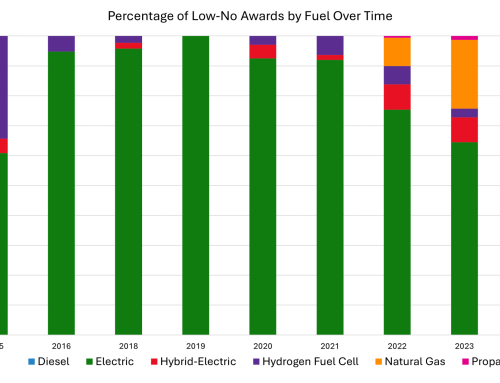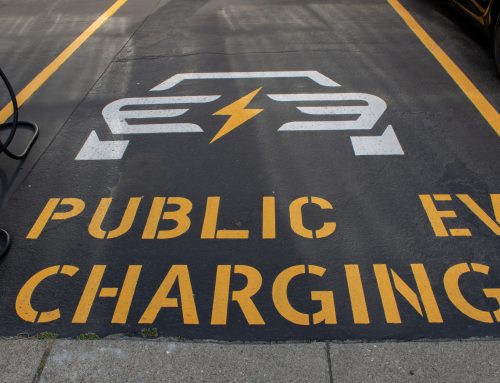
|
Electric vehicle (EV) fees are a hot button topic, and as consumer adoption of EVs significantly accelerates across a number of markets, states are now attempting to reconcile losses of gas tax revenue. As such, EV drivers are subject to several fees that are intended to replace gas fees, including annual registration fees and charging taxes, either by taxing electricity on a unit of energy basis and/or as a share of the retail price. EV drivers using public charging stations may also pay a sales tax or sales tax equivalent. Our newest data story assesses the landscape of EV fees and compares how they stack up against fees of gasoline-powered vehicles. Below are three learnings from the research. EV drivers may be subject to a double, triple, or a quadruple tax depending on the state they reside in and where they charge. These fees include annual battery electric vehicle (BEV) fees, kilowatt hour fees, sales or electricity taxes. Around 34 states charge BEV drivers additional registration fees, ranging from $50 (Hawaii and South Dakota) to $225 (Washington) with the average fee costing $132.58, and 28 of these states charge an additional registration fee for plug-in hybrid vehicles (PHEV). Additionally, at least seven states have in place taxes, either by the kilowatt-hour or the retail price of electricity, on energy use at public EV charging stations. In our assessment of sales tax treatment of electricity at public fast chargers, we found that 33 states charge EV charging customers a sales tax, and two collect an electricity tax. Table 1 provides summary statistics of these taxes and fees. |
 |
|
We crunched the numbers, and we found that 45 states collected at least one tax or fee, 28 states collect at least two taxes of gees, and three states collect at least three taxes and fees. Next, EV drivers are disproportionately taxed in comparison to drivers of gasoline-powered vehicles in most states, fostering an inequity that only pertains to EV drivers. To understand how these fees accumulate, we calculated the “EV Penalty,” which is the total amount of EV-specific taxes and fees an EV driver who exclusively charges their vehicle at public fast chargers pays in a single calendar year in comparison to a gasoline vehicle driver. Our results show that EV drivers in 36 states, including the District of Columbia, pay more in taxes than drivers of gasoline-powered vehicles. Of these 36 states, 16 pay more than a $150 EV penalty. For instance, an EV driver in Georgia can pay more than $300 in taxes and fees, from the state’s BEV registration fee of $210, a public charging tax of 2.8 cents per kilowatt-hour, and a sales tax of four percent on the electricity they purchase at EV charging stations. Finally, policymakers should bring balance to EV and charging tax treatment. First, there is a lack of transparency that exists on the taxes EV charging customers pay at public EV charging stations. Most states do not clearly define how electricity is taxed at public EV charging stations, and in many cases, tax policy officials did not have this information upon being consulted. To ensure tax literacy for both EV drivers and charging providers, states should clearly lay out the taxes associated with EV ownership and charging, especially as the pace of EV adoption accelerates in the U.S. Second, there is an overt tax gap between public and private EV charging. Since most charging happens at home and is exempt from the taxes studied in this data story, those who rely at public chargers due to not being able to afford a home charger or otherwise are disproportionately taxed. All in all, is imperative that policymakers consider fair public road funding mechanisms that do not yield an inequity for EV drivers. Read the full data story here. |


